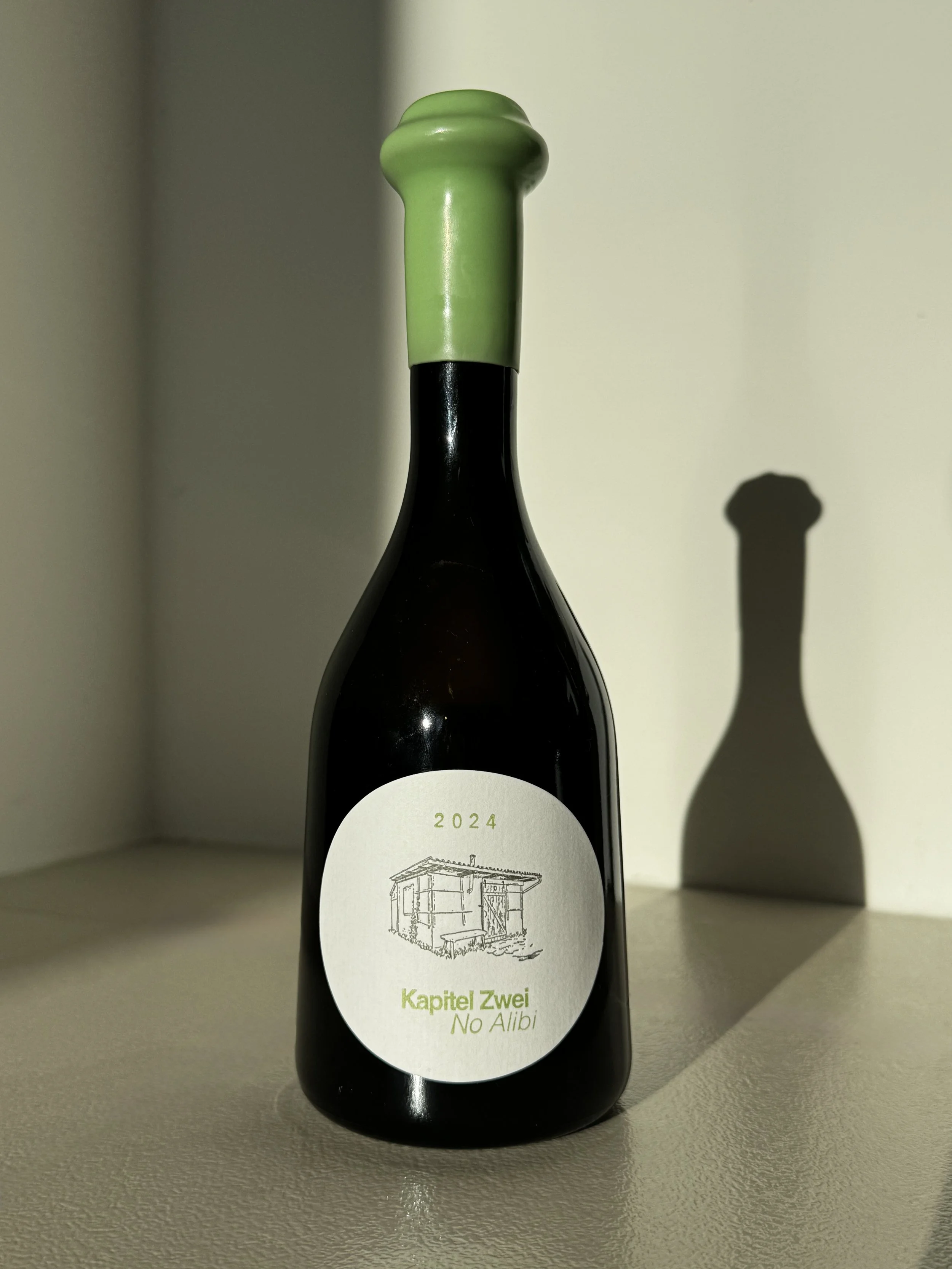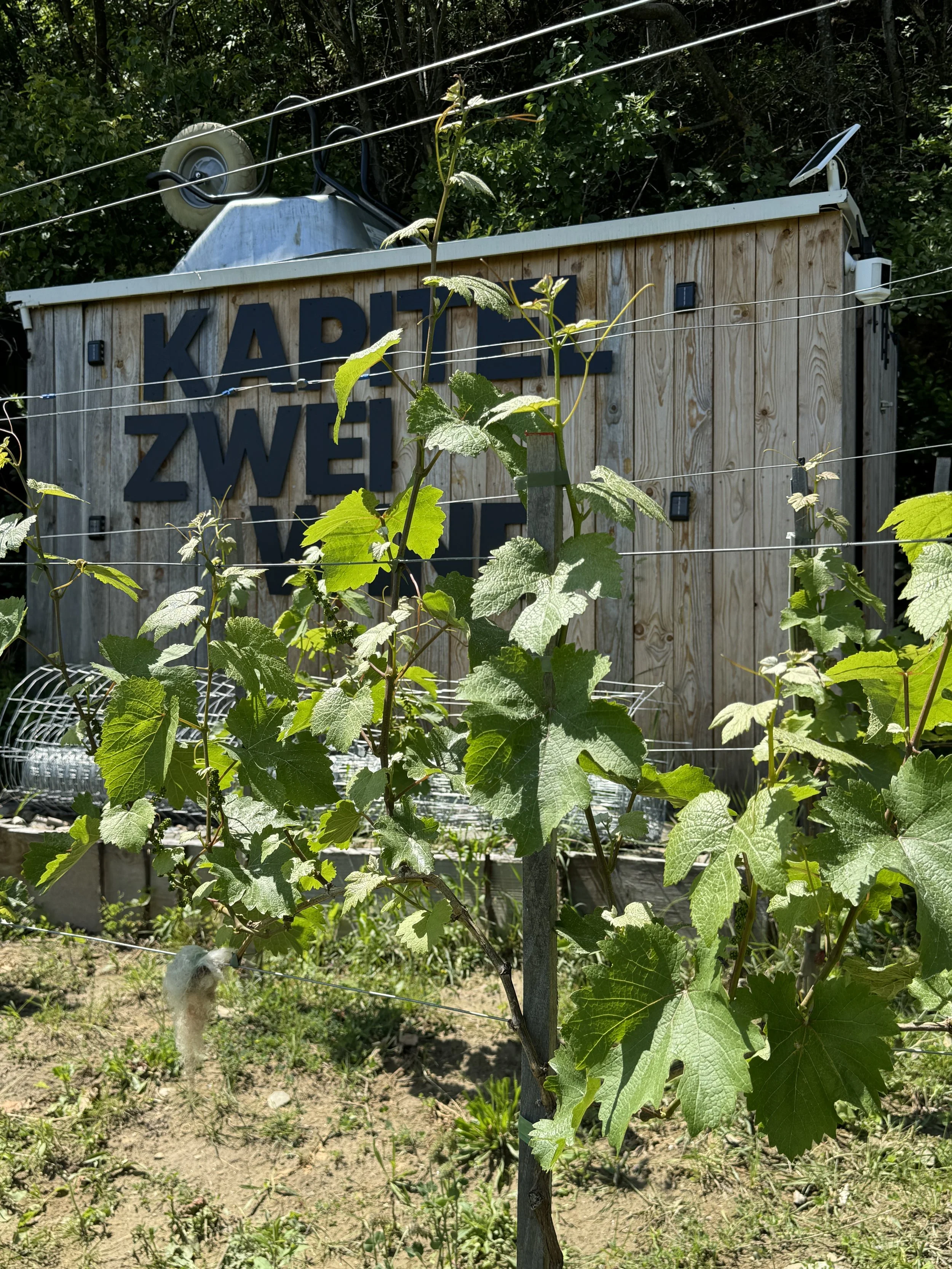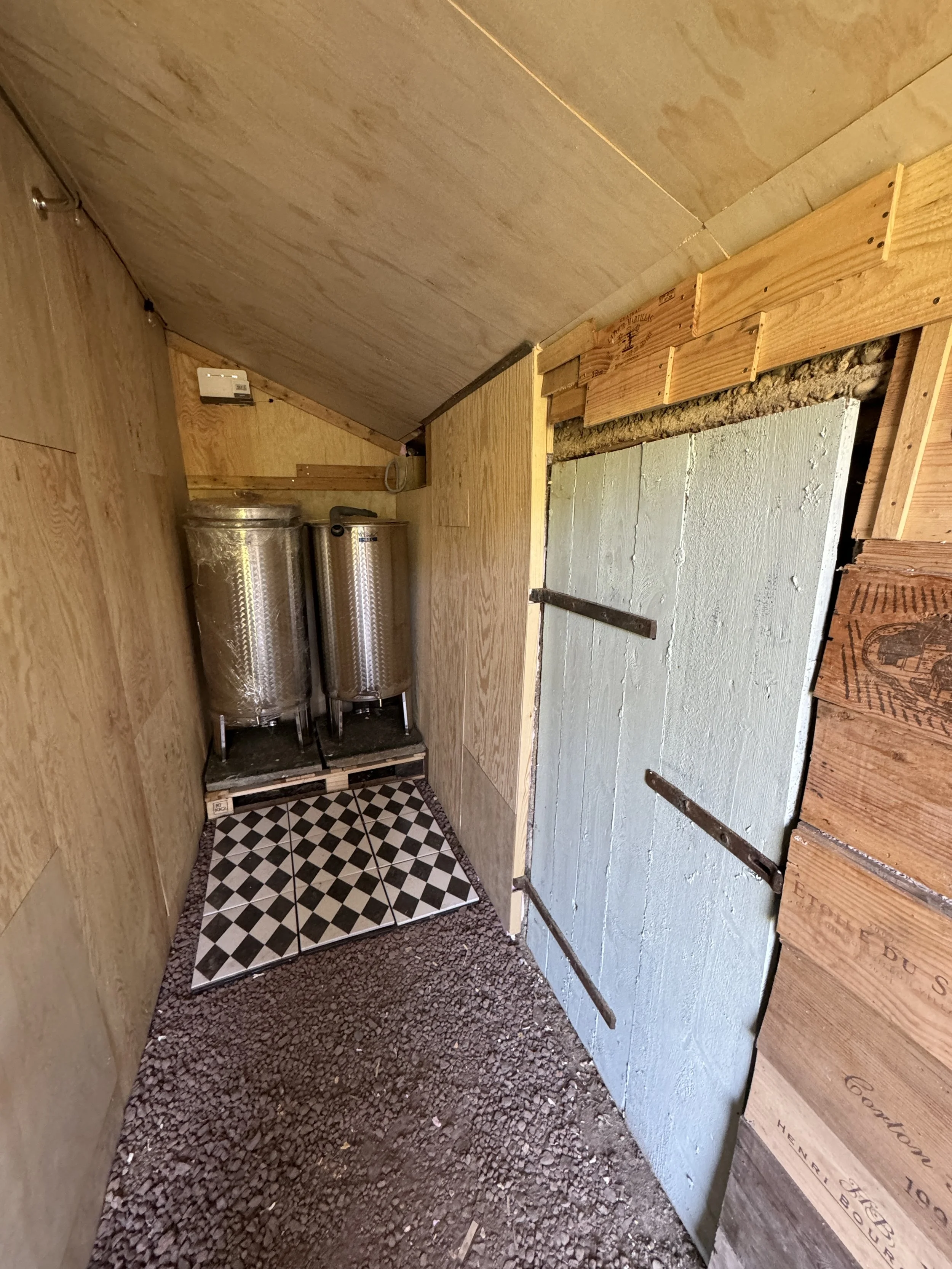The Wine
First Vintage
2023 Alibi
-
Our premier vintage is a blend of 90% Grüner Veltliner and 10% Chenin Blanc. The organic grapes were handpicked on 10 October 2023.
-
The must underwent spontaneous fermentation for 10 days followed by malolatic fermentation where it aged in amphora for 10 months.
-
This is a low intervention wine with notes of butter cream, brioche and lemon curd.
-
The wine is bottled in 500ml brown glass bottles. It will be extremely limited to 95 bottles. Each bottle will be individually hand stamped with its serial number.
-
12.5% ALC
14 mg/Liter of Free SO2
46 mg/Liter of Total SO2
TA 4.0 g/Liter
pH 3.49
Click for the Complete Wine Fact Sheet.
“Just had your 2023 vintage with lobster and salmon for Christmas lunch with my parents - absolutely loved it. Spectacular wine!”
“Natural vinification, amphora but no skin contact, generous mouthfeel with good acidity kickback at the end of the mouth, very enjoyable”
“Just enjoyed the bottle by myself and really enjoyed the wine. Clearly you taste the lees, almost a non carbonated champagne.”
“We tried an interesting new wine at dinner tonight. Perfectly sized bottle for the two of us, paired very well with our raclette, and made for very easy drinking!”
2024 Dilemma
-
100% organic Riesling from Kremstal and Kamptal, Austria
-
The fermentation was rather slow moving starting on 24 September followed by MLF which only finished in early December, not unusual for Riesling, but stressful nonetheless. The wine was aged in amphora on the gross lees until bottling.
-
Nose: Lime Peel, White Peach
Palate: Lemon, Green Apple
Enjoy chilled (7-13C, 45-55F) and perhaps let it rest in the bottle for a few months before popping the cork. If you want to reduce the cloudiness, you can decant.
Due to their mouth watering, crisp acidity, I think both wines pair nicely with oysters, flakey fish or spicy Thai and Indian dishes.
-
Bottled on 2 September 2025.
The wine is bottled in 500ml brown glass bottles. It will be extremely limited to 95 bottles. Each bottle will be individually hand stamped with its serial number.
-
“We tried the wine this evening with some pasta with seafood! We love it, tastes very natural and it went really well with the fish. We look forward to the next one! ”
2024 No Alibi
-
A unique blend of organic 87% Grüner Veltliner, 7% Chenin Blanc, 3% Roussanne and 3% Sémillon.
-
The organic grapes for “No Alibi” were handpicked on several days in mid-September 2024. The must underwent spontaneous fermentation for 14 days followed by malolatic fermentation (MLF) after which it aged in amphora on the gross lees (yeast) until bottling.
-
Nose: Pineapple, Green Apple
Palate: Lemon, Grapefruit
Enjoy chilled (7-13C, 45-55F) and perhaps let it rest in the bottle for a few months before popping the cork. If you want to reduce the cloudiness, you can decant.
Due to their mouth watering, crisp acidity, I think both wines pair nicely with oysters, flakey fish or spicy Thai and Indian dishes.
-
Bottled on 2 September 2025.
The wine is bottled in 500ml brown glass bottles. It will be extremely limited to 95 bottles. Each bottle will be individually hand stamped with its serial number.
-
“Just opened and yet again an excellent wine.. this is medal winning stuff.. fantastic. ”
The Vineyards
Ried Kremsleithen
Kremsleithen is derived from the steep slope (“Leiten” in German) that runs down to the river Krems. It was first mentioned in records dating back to 1266.
More than 30 years ago there were vines here and in May 2022 they returned. This 1,000 square meters vineyard features primordial rock, clay and sandy topsoils on a terraced slope 300-350 meters above sea level.
Learn more about the wine region here.
The first vintage was bottled on 31 August 2023.
Ried Weinzierlberg
For the 2025 vintage I am renting .300 sq meters of old riesling vines planted in Weinzierlberg, one of the oldest viticulture parcels of the Krems Valley. It was first written about in the year 1112 as "Vinitorum Mons" (mountain behind the village of the winemakers or wine ornament).
The soil is composed of a 1 meter loess with a substrate of gravel. The Weinzierlberg is a foothill of the Bohemian Mass and thus crystalline paragneis is found deep underground. The climate is determined by the strong influence of the Pannonian climate.
Everything done in the vineyard.
The highest parts of the vineyard has steep slopes with Sémillon and Roussanne planted in clay soil. It’s an example of agroforestry, as the vines are surrounded by many trees, flora and bushes.
The wooden shed is the press room where the grapes will be crushed using a pneumatic press.
Tasting “Schuppen” Room
We transformed an old storage shed in the vineyard into an industrial chic tasting room. It was filled with decades of clutter, which had to be removed, carried down the steep slopes and into a moving van.
“Schuppen” is German for shed and while it will always be a shed, now it’s a shed that will serve wine. We considered tearing it down and building something new, but it’s protected for its cultural heritage to the wine region.
Cellar
Behind the tasting room is the cellar. Here we have two 110 liter steel tanks for fermenting the wine, which will then be racked into a 55 liter amphora where it will age.
The cellar is also where the solar battery is stored. Behind the mint green door is a small cave built into the slate stone where the amphora is kept.












